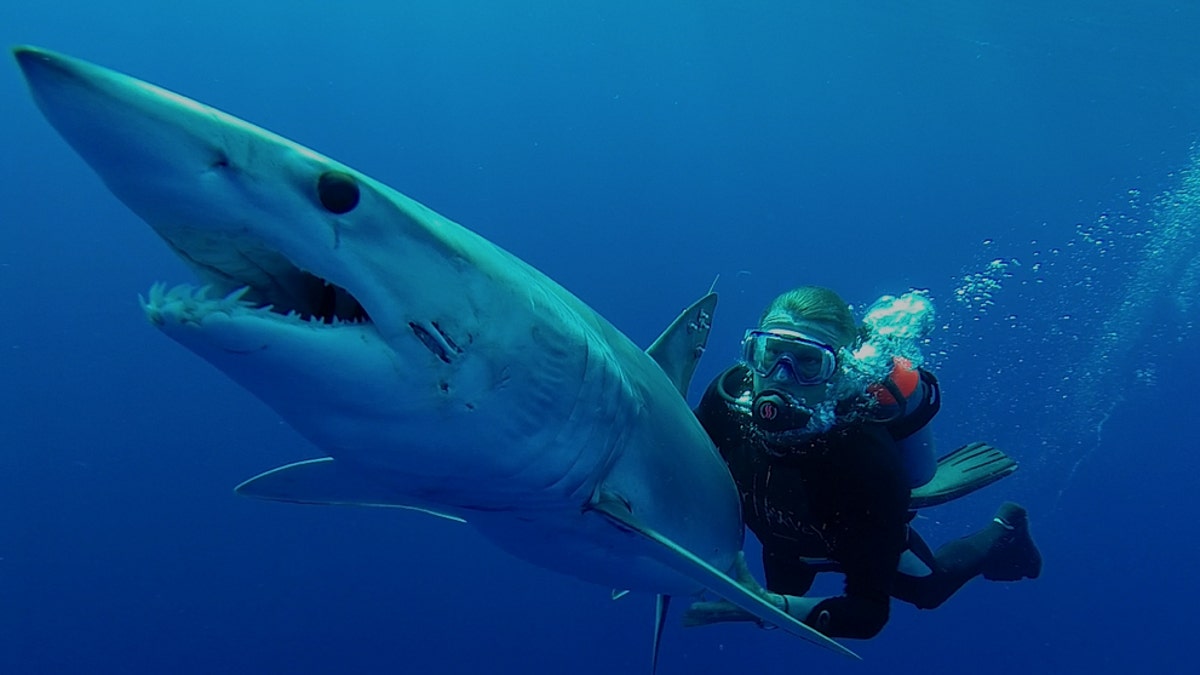
(Nova Southeastern University)
The headlines about recent shark attacks on humans along the North Carolina coast have many people feeling frightened, even though such attacks are statistically rare. But the truth is that the world’s 450 species of sharks, most of which pose no danger to humans, have a lot more to fear from humans.
Consider this: Each year, for every person killed by a shark, about 10 million sharks are killed by humans.
Across the planet’s oceans, vast numbers of sharks are being wiped out, at a rate faster than they can reproduce. It’s a harvest that eventually could disrupt aquatic ecosystems, and even hurt the food supply upon which much of the world’s human population depends.
And the real tragedy is that humans are killing most of these sharks not because they’re dangerous or for food, but out of carelessness. Commercial fishing operations, which are out to catch tuna, swordfishes and other high-value food fishes, use methods that inadvertently hook many sharks as well. In fishing circles, this is known as “bycatch.”
It’s still in our abilities to save sharks, but the window of opportunity is closing rapidly. Because sharks are highly migratory, it’s not enough for the U.S. to take steps by itself to protect shark populations. It’s essential to have a joint international effort among the world’s fishing nations.
In the open ocean, for example, ships use fishing lines that are up to 30 miles in length, with thousands of hooks attached. They often use J-shaped hooks, which can get caught in a shark’s throat or stomach and cause fatal injuries, so that they can’t be released back into the ocean. Closer to shore, fishing operations use gill nets, which are made of a nearly invisible monofilament that efficiently traps large numbers of fishes—including sharks.
But unlike the food fishes who end up on the world’s dinner tables, many sharks that are caught and hauled up on the deck die for no good reason. Though artisanal fishermen can feed entire villages by catching the occasional shark, in much of the developed world their flesh has so little market value that fishing operations don’t even want to waste freezer space on it. Instead, shark carcasses are thrown away. The only parts of the animal that’s profitable to keep are the fins, which have great value in Asian markets for making soup that some believe is an aphrodisiac.
Killing all these sharks and discarding them is a terrible waste of protein, but more importantly, it’s destroying sharks’ ability to sustain their populations. Unlike many animals, sharks have what scientists call a low reproductive capacity. They have a long natural lifespan of 30 years or more, depending on the species, and but they don’t reach sexual maturity until age 8 to 10, or even older. Additionally, female sharks usually have a long gestation period, up to 18 months, and need to rest a year or two between pregnancies. And sharks produce fewer offspring than other types of fishes—often 8 to 12, but sometimes as few as two.
That makes it very difficult for sharks to replace all the individuals that we’re killing. Even if we stopped the current harvest, it might take decades for the shark population to rebound and reach the levels of abundance that they once had, prior to the massive overfishing that humans have been doing over the past century. As is, we’re headed for ecological disruption. Along the U.S. East Coast, many shark species experienced more than a 50 percent decline from their historical apex, and some species declined by 90 percent. And now that fishing operations increasingly are targeting deep, previously undisturbed ocean waters where many of the world’s shark species live, it’s possible that some of them could even be driven into extinction.
Marine scientists and conservationists, of course, are alarmed about the mass destruction of these beautiful, fascinating animals. But everyone else should be worried, too. We don’t know what an ocean without sharks would look like, but it undoubtedly would be very different, and that’s not good. The world’s aquatic food web is so intricate and interdependent that if we pull out one piece, it may have drastic, unpredictable effects. And considering how dependent we are upon the oceans, that could hurt us as much as the fish.
This is a crisis that’s reaching a critical point. It’s still in our abilities to save sharks, but the window of opportunity is closing rapidly. Because sharks are highly migratory, it’s not enough for the U.S. to take steps by itself to protect shark populations. It’s essential to have a joint international effort among the world’s fishing nations. We need industrial fishing operations to adopt more sustainable methods, such as circle hooks that aren’t as likely to catch sharks or sea turtles, another aquatic animal that’s at risk. And we must put more resources into research to develop safer fishing technologies that will sustainably catch tuna or swordfish but not sharks. But we must act now.








































